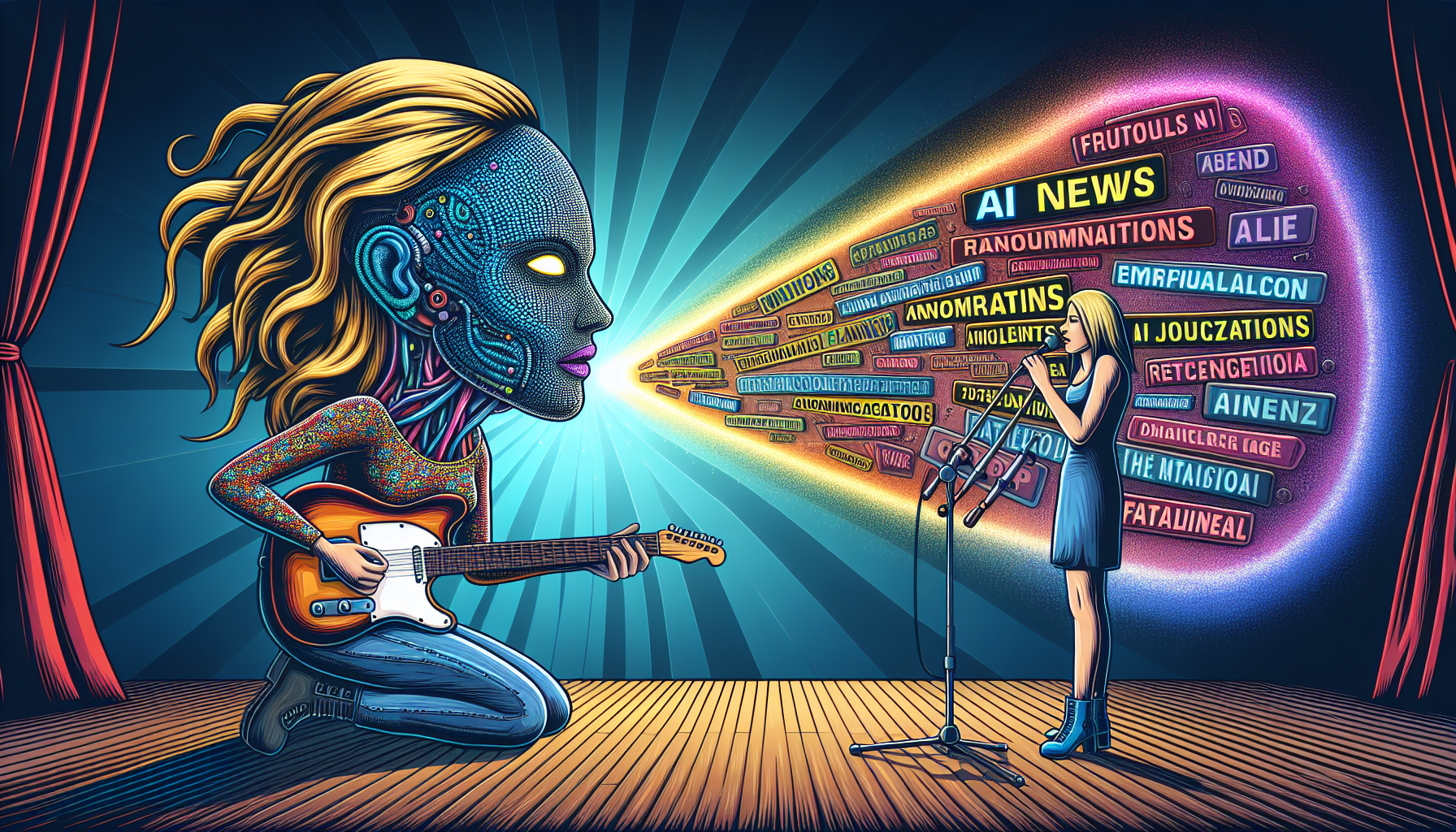
Swift Strikes Back: The AI Misinformation Tango
In an unexpected twist of events, Taylor Swift decided to don her metaphorical superhero cape and delve into the murky waters of AI-generated misinformation. This tale is juicier than a mid-century soap opera and has Twitter (or X, or whatever it is nowadays) in an uproar.
Taylor’s Endorsement Twist
Our story begins with Taylor Swift’s surprising public endorsement of Vice President Kamala Harris for the US presidential race. But wait, it gets better. This endorsement came hot on the heels of AI-generated images falsely suggesting Swift’s support for none other than Donald Trump. Yes, you read that right, Donald Trump. AI sure knows how to stir the pot.
In a cringe-worthy move, Trump shared these misleading AI images on Truth Social. One such gem depicted Swift in an Uncle Sam costume with the booming declaration, Taylor wants YOU to vote for Donald Trump. Swift, never one to let such nonsense slide, took to Instagram to clarify her stance and endorse Harris. Classy move, Taylor.
AI Antics and Outrage
Swift has been vocal about her concerns regarding AI, sounding the alarm on its ability to spread misinformation like butter on hot toast. This isn’t her debut rodeo with AI shenanigans. Earlier in the year, she had to combat nonconsensual sexualized AI images of her floating around on X. Enough was enough, and Swift’s latest escapade is a clarion call for transparency and truth.
Misinformation in elections isn’t a new beast, but AI is turbocharging its potentials. Swift’s statement sheds light on how AI-generated content can act like a digital Trojan Horse, sneaking in disinformation, deepfakes, and whatnot into the public’s purview. This can lead to voter confusion and undermine the very fabric of electoral integrity. Yikes.
Elon, Deepfakes, and Legislative Calls
The AI-misinfo parade didn’t stop with Swift. Enter Elon Musk, a Trump supporter, who lobbed another AI-curveball by sharing a fake campaign video with an eerily accurate AI-generated voice of Kamala Harris. If this doesn’t scream, Time to regulate AI, we don’t know what will.
In response, cries for federal regulations to tackle AI-generated misinformation have grown louder. Swift’s escapade is the latest in a series of incidents that underscore the urgent need for rules that prevent such tech wizardry from mucking up our elections — or any part of our lives, really.
Imaginary Friends and Public Perception
AI’s slippery slope doesn’t just toy with political endorsements; it also plays mind games with public perception. As realistic and misleading AI-generated images flood the internet, our trust in visual and auditory information erodes. Seeing is no longer believing, and that’s a doozy.
Swift’s recent encounter underscores the broader ramifications of AI-generated content across various industries, not just entertainment. It highlights a gaping need for universal guidelines and stringent regulations inundating social media platforms like an over-eager summer intern. Until then, we rely on vigilant voices like Swift’s to call out the chicanery and keep us all in check.






